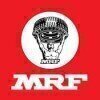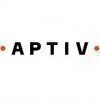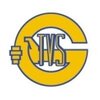
i
Sansera
Engineering
Filter interviews by
Sansera Engineering Interview Questions and Answers
69 Interview questions
To open NX, you typically launch the software from your applications menu or command line interface.
Locate the NX application in your system's applications menu.
Alternatively, use the command line: type 'nx' and press Enter.
Ensure that your environment variables are set correctly for NX to run.
If using a remote server, connect via SSH and then start NX.
Exporting a model to STP format involves using CAD software to save or export the design in the STEP file format.
Open your CAD software (e.g., SolidWorks, AutoCAD).
Load the model you wish to export.
Navigate to 'File' > 'Save As' or 'Export'.
Select 'STEP' or 'STP' from the file format options.
Choose the desired settings for the export (e.g., version, units).
Click 'Save' to export the model.
Understanding measuring instruments and tolerance is crucial for precision in VMC operations.
Measuring instruments include calipers, micrometers, and gauges for accurate dimensions.
Tolerance defines acceptable limits of variation in measurements, e.g., ±0.01 mm.
Calipers measure external and internal dimensions; digital calipers provide precise readings.
Micrometers are used for measuring small distances with high a...
Microsoft Excel is a powerful spreadsheet application used for data organization, analysis, and visualization.
Data Organization: Excel allows users to organize data in rows and columns for easy access.
Data Analysis: Users can perform complex calculations using formulas and functions, such as SUM, AVERAGE, and VLOOKUP.
Data Visualization: Excel provides tools like charts and graphs to visually represent data trends ...
I use computer keyboards efficiently for data entry, typing, and navigating software applications with various techniques.
Touch Typing: I can type without looking at the keyboard, increasing speed and accuracy.
Shortcut Keys: I utilize shortcuts like Ctrl+C for copy and Ctrl+V for paste to enhance productivity.
Numeric Keypad: I use the numeric keypad for quick data entry of numbers, especially in spreadsheets.
Funct...
I have extensive experience with quality documents and systems at Sansera Engineering, ensuring compliance and excellence in manufacturing.
Worked with ISO 9001 quality management system to maintain high standards.
Conducted regular audits and inspections to ensure adherence to quality protocols.
Utilized Six Sigma methodologies to identify and eliminate defects in processes.
Participated in the development and revisi...
I address customer complaints by investigating issues, communicating effectively, and implementing corrective actions to prevent recurrence.
Listen actively to the customer's concerns to fully understand the issue.
Investigate the root cause of the complaint by reviewing production processes and quality checks.
Communicate transparently with the customer about findings and proposed solutions.
Implement corrective acti...
I ensure quality standards by implementing regular checks, training, and fostering a culture of accountability within the production team.
Conduct regular quality audits to assess adherence to standards, such as weekly inspections of production batches.
Implement a training program for new employees to familiarize them with quality protocols, ensuring everyone understands expectations.
Utilize quality control checkli...
Ensuring product quality in mass production involves systematic checks, process controls, and continuous improvement strategies.
Implement Statistical Process Control (SPC) to monitor production processes and identify variations.
Conduct regular inspections at various stages of production, such as in-process checks and final inspections.
Utilize tools like Six Sigma to reduce defects and improve overall process effic...
I utilize structured RCA methods to identify and resolve quality issues, ensuring long-term solutions and process improvements.
I use the 5 Whys technique to drill down to the root cause of issues, such as identifying why a defect occurred in a product batch.
I implement corrective actions based on RCA findings, like adjusting machine settings to prevent recurring defects.
I maintain a log of repeat issues to track p...
Sansera Engineering Interview Experiences
84 interviews found
I appeared for an interview in Oct 2024, where I was asked the following questions.
- Q1. How do you ensure product quality during mass production in a machining process?
- Ans.
Ensuring product quality in mass production involves systematic checks, process controls, and continuous improvement strategies.
Implement Statistical Process Control (SPC) to monitor production processes and identify variations.
Conduct regular inspections at various stages of production, such as in-process checks and final inspections.
Utilize tools like Six Sigma to reduce defects and improve overall process efficiency...
- Q2. What quality documents and systems have you worked with at Sansera Engineering?
- Ans.
I have extensive experience with quality documents and systems at Sansera Engineering, ensuring compliance and excellence in manufacturing.
Worked with ISO 9001 quality management system to maintain high standards.
Conducted regular audits and inspections to ensure adherence to quality protocols.
Utilized Six Sigma methodologies to identify and eliminate defects in processes.
Participated in the development and revision of...
- Q3. What is your experience with Root Cause Analysis (RCA) and how do you handle repeat quality issues?
- Ans.
I utilize structured RCA methods to identify and resolve quality issues, ensuring long-term solutions and process improvements.
I use the 5 Whys technique to drill down to the root cause of issues, such as identifying why a defect occurred in a product batch.
I implement corrective actions based on RCA findings, like adjusting machine settings to prevent recurring defects.
I maintain a log of repeat issues to track patter...
- Q4. What is the importance of a Control Plan, and how do you use it?
- Ans.
A Control Plan is crucial for ensuring product quality and consistency throughout the manufacturing process.
Defines critical process parameters to monitor and control quality.
Helps in identifying potential failure modes and their effects.
Facilitates communication among team members regarding quality standards.
Example: In automotive manufacturing, a Control Plan may specify tolerances for dimensions and inspection metho...
- Q5. How do you handle customer complaints or quality rejections from OEMs?
- Ans.
I address customer complaints by investigating issues, communicating effectively, and implementing corrective actions to prevent recurrence.
Listen actively to the customer's concerns to fully understand the issue.
Investigate the root cause of the complaint by reviewing production processes and quality checks.
Communicate transparently with the customer about findings and proposed solutions.
Implement corrective actions, ...
- Q6. How do you ensure that the production team is consistently following quality standards?
- Ans.
I ensure quality standards by implementing regular checks, training, and fostering a culture of accountability within the production team.
Conduct regular quality audits to assess adherence to standards, such as weekly inspections of production batches.
Implement a training program for new employees to familiarize them with quality protocols, ensuring everyone understands expectations.
Utilize quality control checklists d...
Interview Preparation Tips
I appeared for an interview in May 2025, where I was asked the following questions.
- Q1. NPD related and Drafting
- Q2. Software are auto cad and NX
I appeared for an interview in Apr 2025, where I was asked the following questions.
- Q1. How to solved coustomer complaint?
- Ans.
Addressing customer complaints involves listening, understanding, and providing effective solutions to ensure satisfaction.
Listen actively to the customer's concerns without interrupting.
Acknowledge the issue and empathize with the customer's feelings.
Investigate the complaint thoroughly to understand the root cause.
Provide a clear and concise solution, such as a refund or replacement.
Follow up with the customer to ens...
- Q2. What is this ISO 9000
- Ans.
ISO 9000 is a set of international standards for quality management systems to ensure consistent quality in products and services.
Focuses on customer satisfaction and continuous improvement.
Applicable to any organization, regardless of size or industry.
ISO 9001 is the most recognized standard within the ISO 9000 family.
Example: A manufacturing company implements ISO 9001 to enhance product quality.
Certification can imp...
I appeared for an interview in Mar 2025, where I was asked the following questions.
- Q1. What is computer short cut keys
- Ans.
Computer shortcut keys are key combinations that perform specific functions, enhancing efficiency and productivity in software applications.
Ctrl + C: Copy selected text or items.
Ctrl + V: Paste copied text or items.
Ctrl + Z: Undo the last action.
Ctrl + S: Save the current document.
Alt + Tab: Switch between open applications.
- Q2. How to work computer key bords
- Ans.
I use computer keyboards efficiently for data entry, typing, and navigating software applications with various techniques.
Touch Typing: I can type without looking at the keyboard, increasing speed and accuracy.
Shortcut Keys: I utilize shortcuts like Ctrl+C for copy and Ctrl+V for paste to enhance productivity.
Numeric Keypad: I use the numeric keypad for quick data entry of numbers, especially in spreadsheets.
Function K...
- Q3. Why we are using Microsoft Excel
- Ans.
Microsoft Excel is a powerful spreadsheet application used for data organization, analysis, and visualization.
Data Organization: Excel allows users to organize data in rows and columns for easy access.
Data Analysis: Users can perform complex calculations using formulas and functions, such as SUM, AVERAGE, and VLOOKUP.
Data Visualization: Excel provides tools like charts and graphs to visually represent data trends and i...
- Q4. How to work microsoft excel and microsoft word
- Ans.
Microsoft Excel and Word are essential tools for data management and document creation, widely used in various professional settings.
Excel is used for data analysis; for example, creating spreadsheets to track expenses.
Word is used for document creation; for example, writing reports or letters.
Excel features formulas for calculations; e.g., using SUM to add numbers in a column.
Word offers formatting tools; e.g., changi...
I applied via Referral and was interviewed in Jul 2024. There were 2 interview rounds.
Angle of projections
(2 Questions)
- Q1. Geometry, dimension and tolerances
- Q2. APQP, PPAP, CONTROL PLAN, PROCESS DRAWINGS
(5 Questions)
- Q1. Measurements instruments
- Q2. Questions about Five core tools.
- Q3. Quality control plan
- Q4. Questions related to cp,cpk
- Q5. Capa and 8D report
- Q1. What is GD&T
- Ans.
GD&T stands for Geometric Dimensioning and Tolerancing, a system for defining and communicating engineering tolerances.
GD&T provides a clear and concise way to specify the allowable variation in part geometry.
It uses symbols to represent different types of tolerances, such as flatness, circularity, and profile.
For example, a flatness tolerance ensures that a surface is within a specified distance from a perfect...
- Q2. Explain CNC machining
- Ans.
CNC machining is a computer-controlled manufacturing process that shapes materials with precision and efficiency.
CNC stands for Computer Numerical Control, which automates machine tools.
Common materials used include metals, plastics, and wood.
CNC machines can perform various operations like milling, turning, and drilling.
Examples of CNC machines include CNC lathes, CNC mills, and CNC routers.
CNC machining is widely use...
(2 Questions)
- Q1. Company knowledge
- Q2. CV or resume related questions
(2 Questions)
- Q1. CNC programming knowledge
- Q2. Material & milling tool knowledge
(2 Questions)
- Q1. Previous experiences discussion
- Q2. Salary & HR formalities
Interview Preparation Tips
Required to face interview with confident.
Communicate effectively.
I applied via Naukri.com and was interviewed in Jul 2024. There was 1 interview round.
(2 Questions)
- Q1. Good communication
- Q2. Good knowledge and experience skills
Interview Preparation Tips
(2 Questions)
- Q1. Educational background
- Ans.
I hold a degree in Computer Engineering, with a focus on software development and systems architecture.
Bachelor's degree in Computer Engineering from XYZ University, graduated with honors.
Completed coursework in software development, algorithms, and data structures.
Participated in a capstone project that involved developing a web application for local businesses.
Interned at ABC Corp, where I contributed to a team devel...
- Q2. Work experience
(2 Questions)
- Q1. Core tools and analytics skill
- Q2. Challenges and weakness
Interview Preparation Tips
Top trending discussions






Sansera Engineering Interview FAQs
The duration of Sansera Engineering interview process can vary, but typically it takes about less than 2 weeks to complete.
Tell us how to improve this page.
Sansera Engineering Interviews By Designations
- Sansera Engineering Design Engineer Interview Questions
- Sansera Engineering Senior Engineer Interview Questions
- Sansera Engineering Quality Engineer Interview Questions
- Sansera Engineering Process Engineer Interview Questions
- Sansera Engineering Diploma Trainee Engineer Interview Questions
- Sansera Engineering Production Engineer Interview Questions
- Sansera Engineering Quality Inspector Interview Questions
- Sansera Engineering Junior Engineer Interview Questions
- Show more
Interview Questions for Popular Designations
Overall Interview Experience Rating
based on 94 interview experiences
Difficulty level
Duration
Interview Questions from Similar Companies
Sansera Engineering Reviews and Ratings
based on 1.2k reviews
Rating in categories
|
Engineer
280
salaries
| ₹2.8 L/yr - ₹6.2 L/yr |
|
Quality Inspector
237
salaries
| ₹1.4 L/yr - ₹4 L/yr |
|
Senior Engineer
231
salaries
| ₹4.1 L/yr - ₹9.2 L/yr |
|
Trainee
199
salaries
| ₹1.5 L/yr - ₹3.2 L/yr |
|
Junior Engineer
184
salaries
| ₹2 L/yr - ₹5 L/yr |

Bosch

Samvardhana Motherson Group

MRF Tyres

Ceat Tyres
- Home >
- Interviews >
- Sansera Engineering Interview Questions












